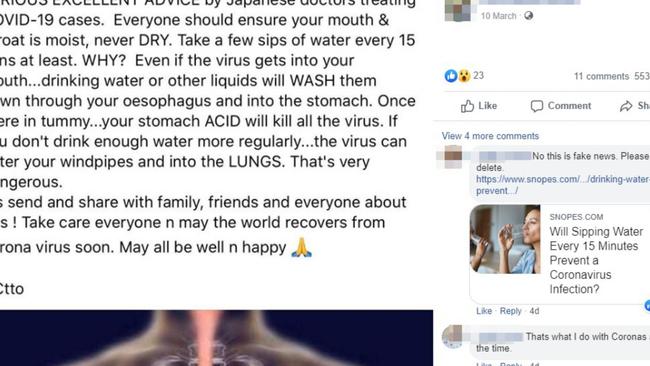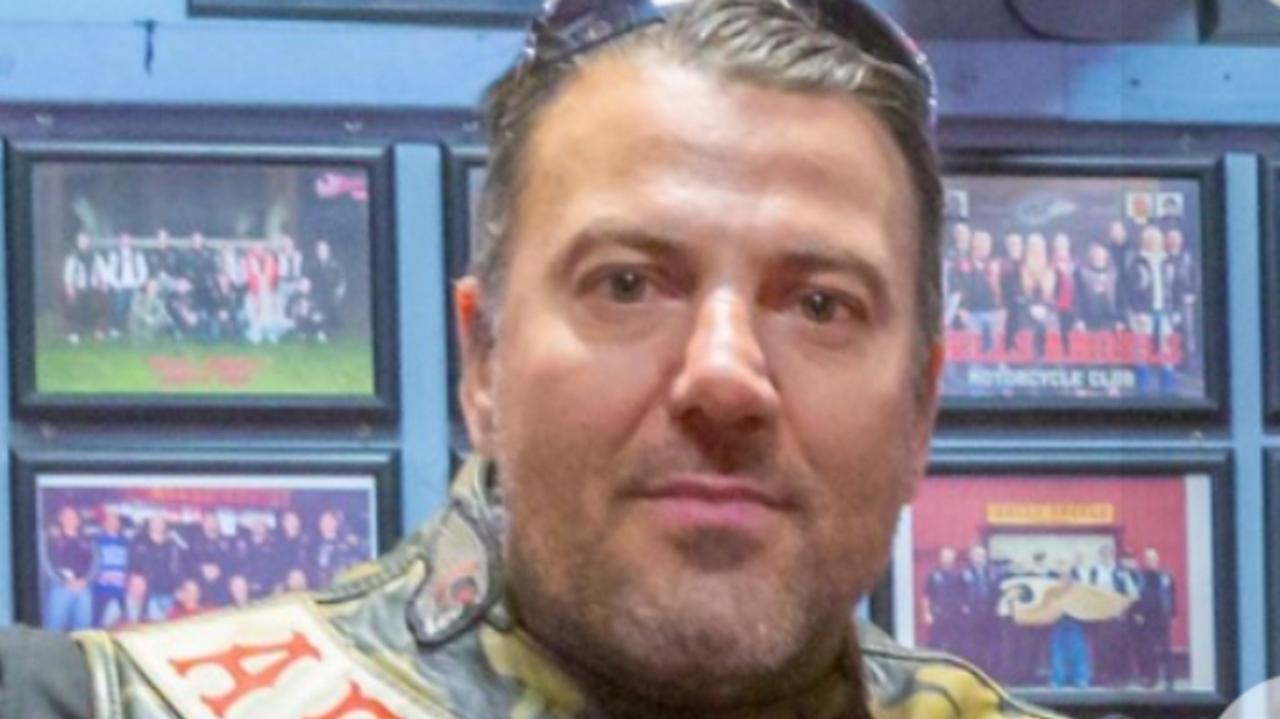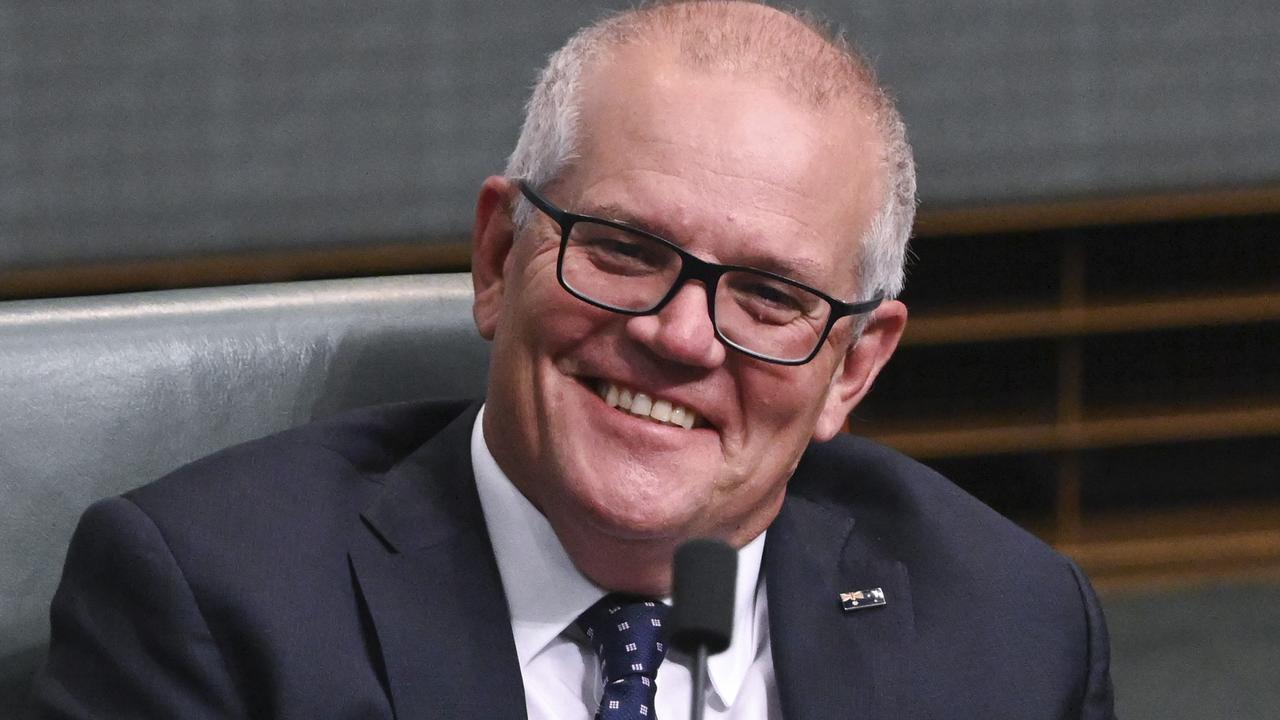Coronavirus hoaxes, conspiracies and scams are flooding social media, experts warn
Fake treatments, wild celebrity conspiracies, and hoaxes about coronavirus outbreaks are flooding social media, experts warn, and attempts to stop them are failing.
National
Don't miss out on the headlines from National. Followed categories will be added to My News.
- Virus issues Aussies are searching for most on Google
- Photos that show why you don’t need to panic buy toilet paper
Fake treatments, debunked medical reports, wild conspiracy theories and outright scams are flooding digital platforms in the wake of the coronavirus pandemic, experts are warning.
Cyber security experts say they have also witnessed an unprecedented rise in ransomware attacks, spam and phishing attempts, with more than 5000 unique campaigns launched in this month alone.
Some efforts by tech giants to stop widespread misinformation are falling well short, with Facebook suffering an embarrassing failure this week when it censored credible news sources instead of removing fake reports.
AAP FactCheck editor Peter Trute told News Corp a group of international fact-checkers had debunked and published corrections on more than 1100 pieces of misinformation shared online about coronavirus so far, and the influx showed no sign of slowing.
Some of the first hoaxes spreading on Facebook claimed COVID-19 cases had been confirmed in Sydney’s eastern suburbs and in Dubbo, Mr Trute said, and they quickly spread out of control.
“When they arose, they were false but they were trending and being shared thousands of times or sometimes hundreds of times,” he said.

“We also saw many claims about how to treat or contain the infection … none are accurate.”
Mr Trute said hoaxes on Facebook have included misinformation about treating coronavirus by drinking warm or salty water, that Cristiano Ronaldo had turned his hotels into hospitals, or even conspiracy theories that the virus was being used to cover up celebrity arrests involving Oprah Winfrey or Tom Hanks.
“One of the challenges is even after being debunked, misinformation can continue to be shared,” Mr Trute said.
“When things are spreading rapidly on social media — and they do move faster than news outlets and health authorities can respond — there’s a challenge in keeping up with the volume.”
Some attempts to remove misleading information about coronavirus have failed so far.
Facebook this week removed hundreds of posts from legitimate news sources, blaming a “bug in an anti-spam system”.
Swinburne social media major director Dr Belinda Barnet said Apple’s decision to remove opportunistic apps about the coronavirus from its App Store was admirable, but some still remained.
She said tech giants would need to step up their human moderation efforts to fight this disease.
“It is haphazard if you are using algorithms, artificial intelligence, and who knows what criteria,” she said.
MORE NEWS:
New season of Survivor called off
Global music stars perform live online as virus hits
Musicians champion streaming binge to tackle COVID-19 hit

“If they really want to crack down on misinformation, they should crack down on the organisations behind it and make sure we are only seeing verified information from health organisations.”
Sophos Asia Pacific and Japan global solutions engineer Aaron Bugal warned there were also a rising number of scams, ransomware and attempts to break into users’ bank accounts coming under the guise of coronavirus information.
“The coronavirus campaigns we’ve seen are unprecedented. From the start of March alone, we’ve seen a 10 times increase in spam campaigns using coronavirus as a call to action,” he said.
Mr Bugal said spam campaigns had risen from 50 to more than 5000 in less than three weeks, and they were “delivering everything from ransomware to keyloggers”.
He said anyone who received a suspicious email, SMS message, or saw an odd Facebook post should check the source, and “take a breath” before taking action.
Mr Trute said checking information online against advice from the World Health Organisation or Australian Department of Health was not difficult and should become more commonplace.
“Anything you see circulating on social media that seems a bit too fantastical can be checked and usually without too much effort,” he said.
Originally published as Coronavirus hoaxes, conspiracies and scams are flooding social media, experts warn



